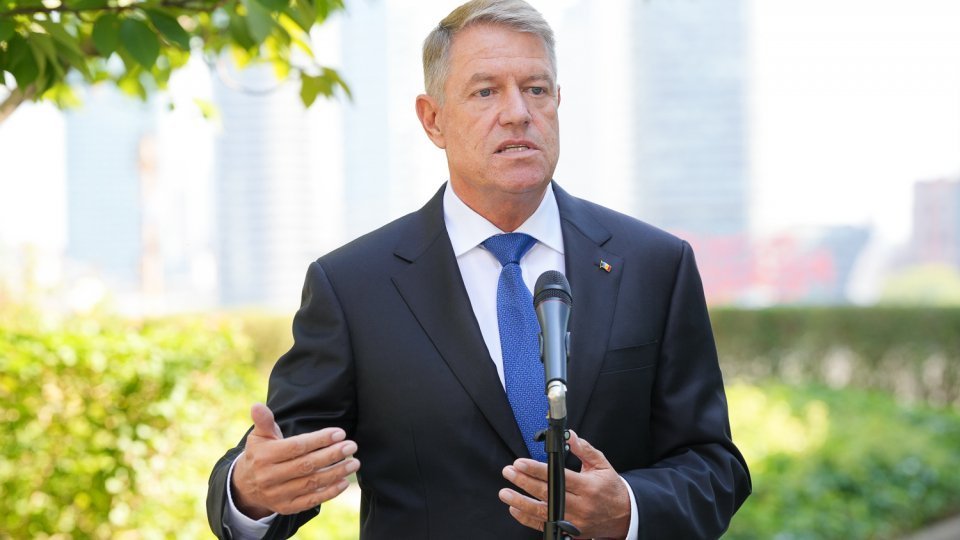European leaders should adopt the negotiating framework for Ukraine and Moldova's accession to the EU

Articol de Bogdan Isopescu, 22 Martie 2024, 01:13
President Klaus Iohannis said he does not expect any substantive problems with the adoption of the negotiating framework with Ukraine and Moldova at the EU summit in Brussels, but one problem would be the deadline for the start of the negotiations themselves.
Also at the European Council, he says Romania will continue to help Ukraine on all fronts, but will maintain the same discretion that is required of a country close to the front line.
-Negotiating framework for Ukraine and Moldova's accession to the European Union
On the first day of the summit, European leaders were expected to adopt the negotiating framework for Ukraine and Moldova's accession to the European Union, the last step before negotiations begin. President Iohannis said substantive agreement is not a problem, but there are differences of opinion between countries on when the first intergovernmental conferences with the two countries should begin, which is the start of the negotiations themselves.
"There is an ambition to start very quickly. On the other hand, I think there will be voices that would not like to see an extraordinary haste and I think that we will have a discussion on deadlines rather than on substance", said Klaus Iohannis.
-Military aid for Ukraine
Another topic of the council is the European arms industry, which is also closely linked to military aid to Ukraine, which should be increased urgently to cope with the scale of the war. Klaus Iohannis says Romania will continue to support Ukraine in all areas, including military aid, but this aid will be just as discreet because of the proximity of the front.
There are several proposals on the Council table to increase military aid to Ukraine, one of which is the one proposed by the Commission on Wednesday, which finally has a legal argument, namely to use the profits from frozen Russian assets to support Ukraine militarily.
Another initiative that has taken shape is that of the Czech Republic, which proposes using the European Peace Fund for arms purchases from outside the Union. Finally, countries such as Estonia and Finland, which are consistently helping Ukraine, are asking other member states to follow their example and give at least 0.25% of GDP to this cause, money that would put Kyiv in a position to counter Russian pressure.
Translated by: Radu Matei














